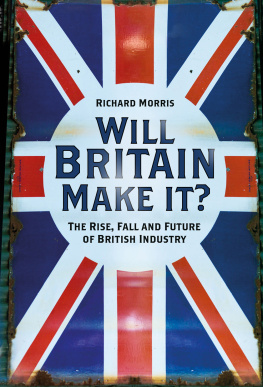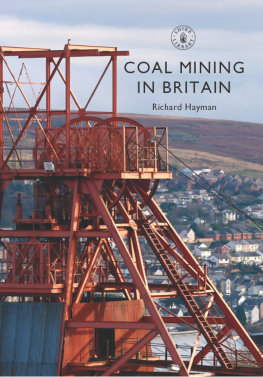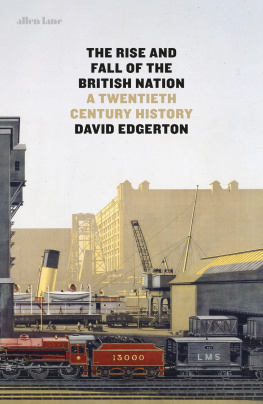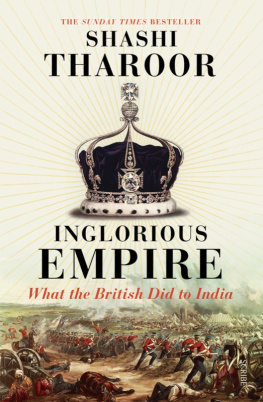Contents
Guide


Jacket illustration: Old BP fuel sign, Norfolk (Eric Farrelly/Alamy)
First published 2022
The History Press
97 St Georges Place, Cheltenham,
Gloucestershire, GL50 3QB
www.thehistorypress.co.uk
Richard Morris, 2022
The right of Richard Morris to be identified as the Author of this work has been asserted in accordance with the Copyright, Designs and Patents Act 1988.
All rights reserved. No part of this book may be reprinted or reproduced or utilised in any form or by any electronic, mechanical or other means, now known or hereafter invented, including photocopying and recording, or in any information storage or retrieval system, without the permission in writing from the Publishers.
British Library Cataloguing in Publication Data.
A catalogue record for this book is available from the British Library.
ISBN 978 1 8039 9223 5
Typesetting and origination by The History Press
Printed and bound in Great Britain by TJ Books Limited, Padstow, Cornwall.
eBook converted by Geethik Technologies

Contents
Introduction
About the Book
For a lot of people it seems as though engineering and manufacturing in Great Britain ended about twenty years ago with the belief that all production shifted to China. There seems to have been a collective British shrug about this, as if there was an inevitability to it as low-cost Asian economies started to develop but, never mind, the creative, financial and service sectors have risen to fill the gap. Recent years have indeed witnessed a quite remarkable collapse of British industry and with it some of the countrys biggest and best-known companies. However, it is not true that low-cost economies were solely to blame for this demise and many of the great names of British business ceased to exist in their recognised form long before the exodus of manufacturing overseas. Britains collapse from Industrial Revolution pioneer and leader to industrial also-ran was due to a heady mix that included myopia, duplicity and stupidity. You only have to look at the health of industry in Germany a nation devastated by the Second World War to see what could have been avoided and what should have been possible. Nor is it true that the rise of Britains service sector will compensate for the loss of its industrial base, making this collapse a national tragedy even if the British cant quite acknowledge it. It would be possible to write about this collapse and its effects using pure statistics, but this seems a rather dry approach. This book instead simply provides some initial political and economic context in Chapters 1 and 2. For simplicity, Ive generally referred to Britain rather than the United Kingdom. The United Kingdom, or UK, would be the more correct as it includes Northern Ireland, whereas Britain refers only to England, Scotland and Wales, but Britain is I think how most overseas readers recognise the national identity. Its also easier to write about Britons and the British rather than United Kingdomers or the United Kingdomish. Please also note that Ive deliberately tried not to riddle the book with academic footnotes and references, or frequent deferment to ibid., simply to make it more readable but would refer you instead to the sources listed in the bibliography.
From onwards, the book views the industrial decline from the inside, from the perspective of what were some of Britains and the worlds greatest companies. These chapters tell the stories of how these companies started, how they became great and seeks to understand why they failed and what happened to their business subsequently. The stories are compelling because many started from quite humble beginnings and went on to achieve greatness only to fail, and fail quickly, from positions that seemed invincible. If you think I have got these corporate facts wrong then I apologise. There are many sources of information about the histories of the companies and these are often conflicting. Its also difficult to encapsulate so much information in the shorter summaries that are provided here. For example, the government decision to invest or not in the ailing British motorbike industry involved several different departments, several potential funding policies and schemes, political divides, manifesto promises, election intrigues and multiple political personalities. In the book this is encapsulated in one short sentence (see p.88). Getting the history and nuance right in a few words across such a depth of material is challenging and inevitably different interpretations and opinions will be apparent. There are many books that do go into companies more deeply than Ive been able to here and I would encourage you to investigate these more detailed company biographies. I am certainly indebted to the authors of these books, whose research I have drawn on extensively and whose passion for our cultural heritage leaves me much indebted and with much admiration. (And if you want a fuller understanding of the motorbike investment saga, Jock Bruce-Gardynes 1978 book Meriden:Odyssey of a Lame Duck would be a good place to start.)
The majority of the companies looked at are or were involved in manufacturing, which is simply because this is the nature of business that arose out of the crucible of the Industrial Revolution and the power of Victorian industrial engineering that made Britain the workshop of the world. Younger readers may be surprised at just how great these British companies were. The company names may provide a degree of nostalgia for older generations, who will remember them and who may well have worked for them, coupled with a gnashing of teeth at the passing of so many great British institutions. looking at the things that were achieved, and at the surprising legacies that have been passed on.
I hope that this uniquely macro and micro look at British industry will give insights into the industrial past, and the future. Are the legacies and lessons learned enough to see Britain maintain an industrial presence? My views on whether Britain will make it will need to be read in the final chapters. I hope that for readers including those in business, as well as scholars and politicians my collective analysis and overview for the future are thought-provoking. If you think Ive got the analysis and predictions wrong then note that these are just my opinions. This is a book about lessons learned, however, rather than blame. I hope, too, you will forgive any factual errors made. The problem with writing about corporate ownerships, subsidiaries and business dynamics is that they are subject to such rapid change, and these changed even during the course of writing. The facts, therefore, were as accurate as I could make them at the time, which was prior to the outbreak of the Covid-19 pandemic.
About the Companies in the Book
There are some outstanding British inventors in British history, developing ideas that transformed this small, agricultural and wool-producing nation into an engineering powerhouse. Remarkably, there are some businesses that have survived from this era through to today, including Richard Carter Ltd, GB Kent & Sons Ltd, Jaques of London, Dudson Ltd and Ormiston Wire, which date back to the 1700s. Britains oldest manufacturing company, the Whitechapel Bell Foundry, operated for nearly 450 years before closing in 2017.















